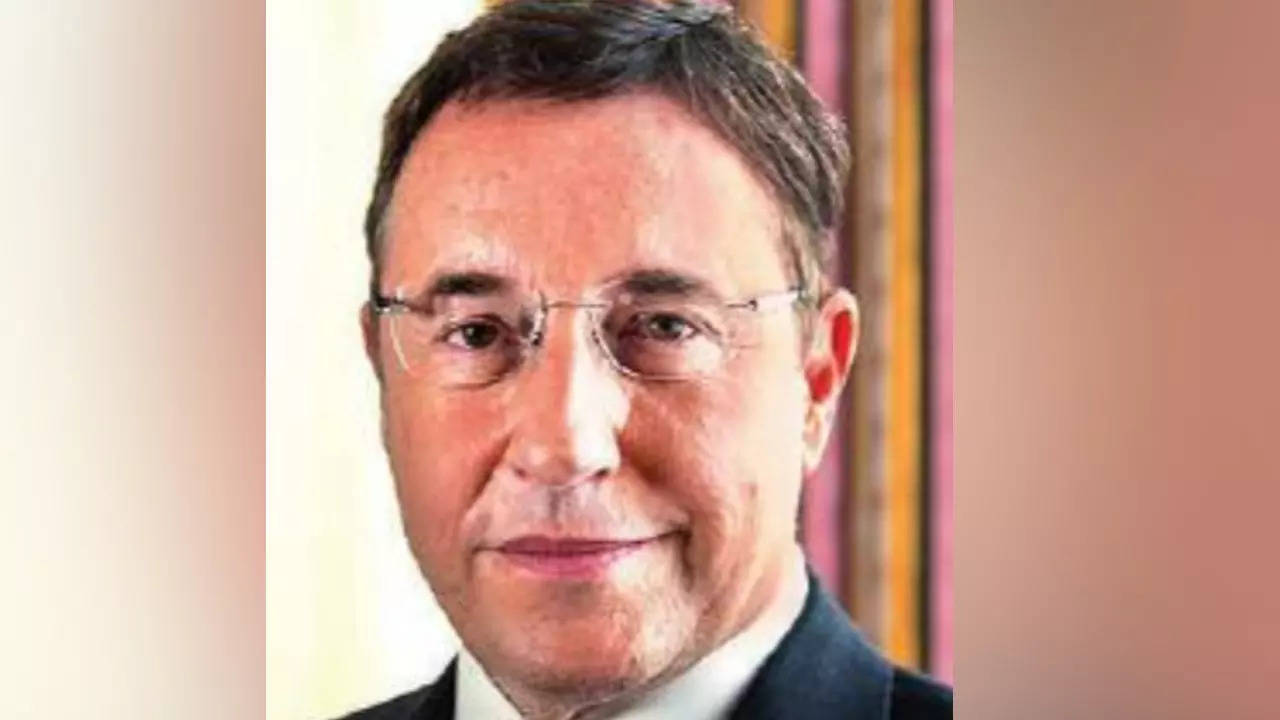India
‘We need to leverage existing financial institutions better’ | India News

[ad_1]
Achim Steiner , administrator of the United Nations Development Programme, is in India as the UN secretary general’s representative for the G20 meeting of finance ministers and central bank governors and key government ministers. In an interview with TOI’s Sidhartha , he underlines the need to focus on debt restructuring of the poor and developing countries and also supporting energy transition in poor and developing countries. Excerpts from the interview:
UNDP released a report which identified 52 countries facing acute debt stress. What is the solution to address this problem?
When you use the term debt distress, it means they are one step away from default. For the UN and UNDP that has very significant implications because millions are at risk. These countries make up 4-5% of world GDP but 40% of world’s poor live in these countries. For many countries this debt is not part of bad policies but disaster to disaster happening – first we had the Covid crisis, then cost of living crisis, energy crisis and now with inflation, an increase in interest rates. Around 25 developing countries are paying one-fifth of government revenue just to service their debt, not repay it. Therefore, there is a call by the UN secretary general that we need a far more ambitious sustainable development goal stimulus plan that deals with the financial and economic and debt issues, while also investing in the future of development.
How do you address the problem?
There are three elements recommended by the secretary general – inject more liquidity, reschedule and restructure debt and enable developing countries to access longer term debt at lower cost. Since many countries are in the yellow or red zone, they are paying a premium that is no longer affordable. Countries that go to the capital markets would have to pay 10-12%, which is not affordable. We need to leverage existing financial institutions better and also work on rescheduling debt as majority of it is held by private creditors. They need to be brought to the table as well.
Do you see a solution by the time G20 leaders meet in September?
The G20 this year is in a unique moment – to address the short-term crisis and also undertake the longer-term reforms. The reform of the World Bank is a key item on the agenda. These are geopolitically very stressful times, we can still find common ground to advance on these reform proposals that are long overdue and without which we will probably witness the situation get worse.
Climate finance is another key concern, which is seen a legacy issue. How do you see it with a developing country lens?
With frustration. The challenge of addressing climate change is not a northern issue that is not central to the future of the South. Second, the transition towards cleaner energy system is no longer one that is so costly that it is the luxury of the rich to afford it, but the poor cannot access it. In Africa, investing in renewable energy infrastructure is a short cut to gaining access to electricity. I look at India’s extraordinary programme of investing in 480,000 mega watt by 2030. The greatest difficulty is that in a country like India, the markets and effective regulatory environment allow for much of the capital to be mobilised through the private sector.
For least developed countries, the commitment by the international community to co-invest and co-finance is simply not commensurate to what is promised and needed. What we will see this year is a growing debate on finance. There is a setback as the cost of capital has gone up due to increase in interest rates. Since you going to borrow less, you will invest less in energy transition. Second, for many governments, especially the poor, it’s difficult to get private sector investment.
In 2022, investment in renewable energy infrastructure was around $380 billion, and only $13 billion found its way into Africa, where 600-700 million don’t have access to electricity. If we don’t address of climate finance and development finance we are not addressing the issue transition adequately.
UNDP released a report which identified 52 countries facing acute debt stress. What is the solution to address this problem?
When you use the term debt distress, it means they are one step away from default. For the UN and UNDP that has very significant implications because millions are at risk. These countries make up 4-5% of world GDP but 40% of world’s poor live in these countries. For many countries this debt is not part of bad policies but disaster to disaster happening – first we had the Covid crisis, then cost of living crisis, energy crisis and now with inflation, an increase in interest rates. Around 25 developing countries are paying one-fifth of government revenue just to service their debt, not repay it. Therefore, there is a call by the UN secretary general that we need a far more ambitious sustainable development goal stimulus plan that deals with the financial and economic and debt issues, while also investing in the future of development.
How do you address the problem?
There are three elements recommended by the secretary general – inject more liquidity, reschedule and restructure debt and enable developing countries to access longer term debt at lower cost. Since many countries are in the yellow or red zone, they are paying a premium that is no longer affordable. Countries that go to the capital markets would have to pay 10-12%, which is not affordable. We need to leverage existing financial institutions better and also work on rescheduling debt as majority of it is held by private creditors. They need to be brought to the table as well.
Do you see a solution by the time G20 leaders meet in September?
The G20 this year is in a unique moment – to address the short-term crisis and also undertake the longer-term reforms. The reform of the World Bank is a key item on the agenda. These are geopolitically very stressful times, we can still find common ground to advance on these reform proposals that are long overdue and without which we will probably witness the situation get worse.
Climate finance is another key concern, which is seen a legacy issue. How do you see it with a developing country lens?
With frustration. The challenge of addressing climate change is not a northern issue that is not central to the future of the South. Second, the transition towards cleaner energy system is no longer one that is so costly that it is the luxury of the rich to afford it, but the poor cannot access it. In Africa, investing in renewable energy infrastructure is a short cut to gaining access to electricity. I look at India’s extraordinary programme of investing in 480,000 mega watt by 2030. The greatest difficulty is that in a country like India, the markets and effective regulatory environment allow for much of the capital to be mobilised through the private sector.
For least developed countries, the commitment by the international community to co-invest and co-finance is simply not commensurate to what is promised and needed. What we will see this year is a growing debate on finance. There is a setback as the cost of capital has gone up due to increase in interest rates. Since you going to borrow less, you will invest less in energy transition. Second, for many governments, especially the poor, it’s difficult to get private sector investment.
In 2022, investment in renewable energy infrastructure was around $380 billion, and only $13 billion found its way into Africa, where 600-700 million don’t have access to electricity. If we don’t address of climate finance and development finance we are not addressing the issue transition adequately.
#leverage #existing #financial #institutions #India #News






